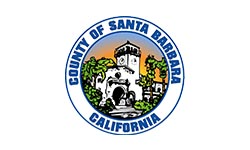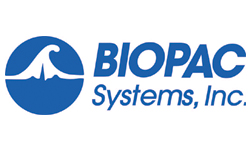WordPress vs Webflow, Wix & Squarespace
There are so many tools and platforms available today for creating websites that it can be difficult to sort through the options. Whether you are a small business owner or manager trying to figure out the most cost effective way to build your website, a marketing director trying to decide on the best platform for your company, or someone considering a career in web development, it’s helpful to understand the pros and cons of the various options available.
There are literally thousands of tools and platforms for creating websites, so we will focus on just a few of the more popular ones. Also, we will not dive into a detailed analysis of every feature in each platform. Instead, we will consider the high level differences in approach that each platform takes and when you might want to use one versus another.
First, when comparing WordPress to any other platform, it’s important to understand that there are two versions of WordPress that have very different capabilities and business models. WordPress.org provides a free open-source version of the WordPress software that you can download and host anywhere you like. WordPress.com is a for-profit site that provides a feature-restricted version of the WordPress software hosted on a proprietary platform. For these reasons, WordPress.com is actually much more like Webflow or Wix than it is like WordPress.org. From here on out, when we talk about WordPress, we mean WordPress.org and when we talk about “proprietary platforms,” we mean Webflow, Wix, SquareSpace and WordPress.com.
Open-Source vs Proprietary
This is one of the fundamental differences between WordPress and the other platforms mentioned here. WordPress is freely available software that you can download and customize to whatever degree you want and host wherever you want. You are literally given the source code to WordPress which means you have full access to everything happening behind the scenes and “under the hood.” For all intents and purposes, this means that you own your site and have total control over its destiny.
Proprietary systems require that you pay them a fee to host your site on their platform. They do not provide access to the source code and you can only customize your site within the confines of the features that these platforms offer. They essentially own your site. If you want to move your site elsewhere, you will have to rebuild it on whatever new platform you select.
Available Templates and Add-ons
WordPress as well as the proprietary platforms, have the concept of templates and add-ons, though in the WordPress world these are called themes and plugins. Templates or themes are canned website designs. They are professionally designed generic website layouts that enable you to avoid hiring a professional graphic designer to create the look-and-feel of your site. Add-ons or plugins, are features that you can add to your site. For example, all platforms have a “form builder” add-on that enables you to add a contact form to your website so you can collect visitor information.
The proprietary platforms measure the number of templates and add-ons in the dozens. For example, Squarespace has, at the time of this writing, 15 templates and 146 plugins. It’s harder to measure the number of themes and plugins for WordPress because there are thousands of independent developers that sell them through their own websites and there is no single comprehensive repository. However the two largest providers of WordPress add-ons have over 7200 themes in their combined libraries and there are over 55,000 plugins available at WordPress.org alone.
The far greater number of themes and plugins available for WordPress translates to greater choice for website owners and a more active and vibrant marketplace for developers and owners.
Ease of Use
The fundamental premise of most of the proprietary platforms is to create an easy-to-use platform, enabling virtually anyone to create a website for themselves. As a result, they place strong emphasis on WYSIWYG editors and limited feature sets. In general, these platforms succeed at their mission and are among the easiest ways to quickly build a simple and attractive website.
The purpose of WordPress has more to do with creating a platform that anyone can use and extend for their own purposes. While ease-of-use is an important priority for WordPress, it’s not necessarily the main one. The simple fact that WordPress is self-hosted (you need to find a web hosting company to run it) and that its marketplace for themes and plugins is orders of magnitude larger than all of the proprietary systems combined, means that there is more inherent complexity. However, because there are so many independent companies working to enhance WordPress in a variety of ways, tools for easy site and page building are rapidly evolving. For example, the page-building plugin Elementor, provides an intuitive experience for building pages in WordPress that many will find to be as easy and elegant as those found in any of the proprietary systems.
The Future
As most people are aware, technology evolves so quickly that it’s difficult to make accurate predictions about the future. Will the phone or software or other technology-related item you buy today be obsolete tomorrow? The invention of the iPhone decimated BlackBerry and Motorola, two incredibly popular phones at that time. The creation of Facebook relegated Myspace to a nearly forgotten page in history. The list goes on and on. Many people want to know whether the web technology in which they choose to invest their time and money will still be around a few years from now or whether they will have made a bad investment and need to rebuild their site.
One way to answer this is to look at the size of the marketplace that a technology has captured and its rate of growth. A large and growing market is usually a better bet than a small or stagnant one. WordPress commands over 62.5% of the CMS market. Squarespace owns about 2.7%, WIX about 2.3% and Webflow about .2%. And WordPress has obtained the majority of that market share in the past 10 years so it has grown rapidly and continues to do so.
The proprietary systems also seem to be growing, however they command such a small percentage of market share and their profitability is unknown since they are privately held, so it’s difficult to know how viable they will be in the future.
Recommendations
If you are an individual or small business owner looking to create a website yourself, the proprietary platforms are a good choice. They are inexpensive to get started with, easy to use, and will enable you to produce an attractive and functional site. Or if you want to hire someone to build a site for you and you have a very modest budget, for example $500-$1500, hiring someone who specializes in one of these platforms might be a reasonable approach as long as you set expectations accordingly.
If you work at a company that has a budget to bring in a professional company to build a website for you, WordPress is probably a better option. Its flexibility in growing as your company’s needs grow, its wider marketplace of themes and plugins, and it’s much greater market share and therefore industry support, all translate to a platform that is more likely to meet your needs.





























